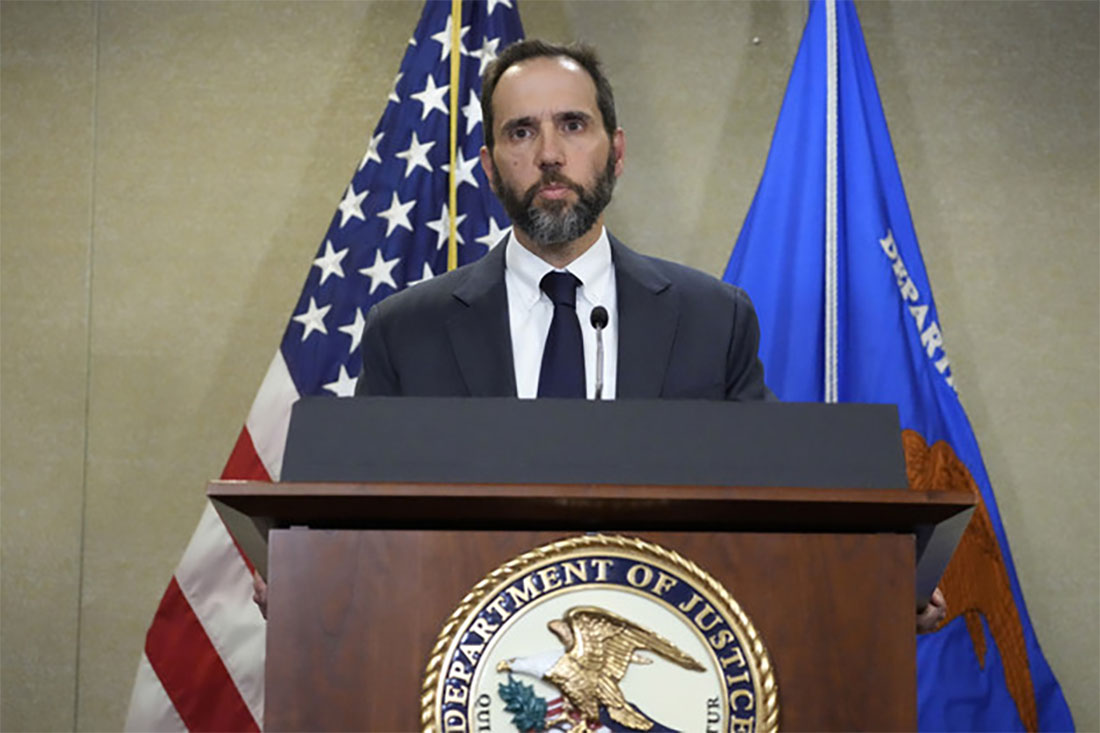Photo Credit: Getty Images
Special Counsel Jack Smith has moved to dismiss two federal cases against President-elect Donald Trump, citing a Department of Justice (DOJ) policy that prohibits prosecuting a sitting president. This decision, detailed in court filings, marks a turning point in the legal challenges surrounding Trump as he prepares for his inauguration on January 20, 2025.
The election interference case accused Trump of orchestrating a "criminal scheme" to overturn the 2020 election results. However, Smith emphasized that the dismissal is not a reflection of the case's merits but stems from the DOJ's longstanding constitutional policy. This policy is rooted in the principle that federal indictments and prosecutions of sitting presidents could disrupt governmental functions.
Smith also moved to withdraw his appeal of the classified documents case against Trump, initially involving 40 criminal counts related to Trump's handling of sensitive materials post-presidency. Judge Aileen Cannon had dismissed the case earlier, finding Smith's appointment improper. Smith maintained that his team stands "fully behind" the evidence and charges.
Despite dropping the cases against Trump, Smith seeks to continue appeals against co-defendants Walt Nauta and Carlos De Oliveira. Both individuals face obstruction charges in connection with the classified documents case. Their legal status, unaffected by presidential immunity, keeps them under judicial scrutiny.
Trump's legal team celebrated the dismissal as a "major victory for the rule of law." Campaign spokesperson Steven Cheung stated that the move highlights the need to end "the political weaponization of the justice system" and signals an opportunity to unify the country. Trump's re-election has effectively placed other criminal cases against him in limbo.
The election interference case faced significant hurdles following a Supreme Court ruling granting Trump immunity for acts tied to official duties during his presidency. Prosecutors restructured their charges to align with this ruling, framing Trump's actions as campaign-related rather than presidential.
Judge Tanya Chutkan had been considering the case's trajectory after Smith requested time to reassess DOJ policies. Deadlines loomed, but Smith's filing a week in advance ensured the dismissal aligns with procedural requirements before Trump's inauguration.
This development compels Smith to finalize and submit his report to Attorney General Merrick Garland. The DOJ mandates special counsels to prepare public reports, subject to classification reviews, detailing their investigations. Garland, committed to transparency, has made previous special counsel reports public.
Smith's decision follows similar precedent, as seen in the DOJ's handling of cases involving prior administrations. The move underscores the complexities of prosecuting high-ranking officials amidst constitutional constraints.
As Trump prepares for his second term, questions remain about the legal and political repercussions of these dismissals.
Critics, like former prosecutor Neama Rahmani, warn of the precedent set, where electoral success might shield leaders from accountability. Smith's strategic withdrawal highlights the tension between legal principles and political realities, leaving an indelible mark on U.S. jurisprudence.


